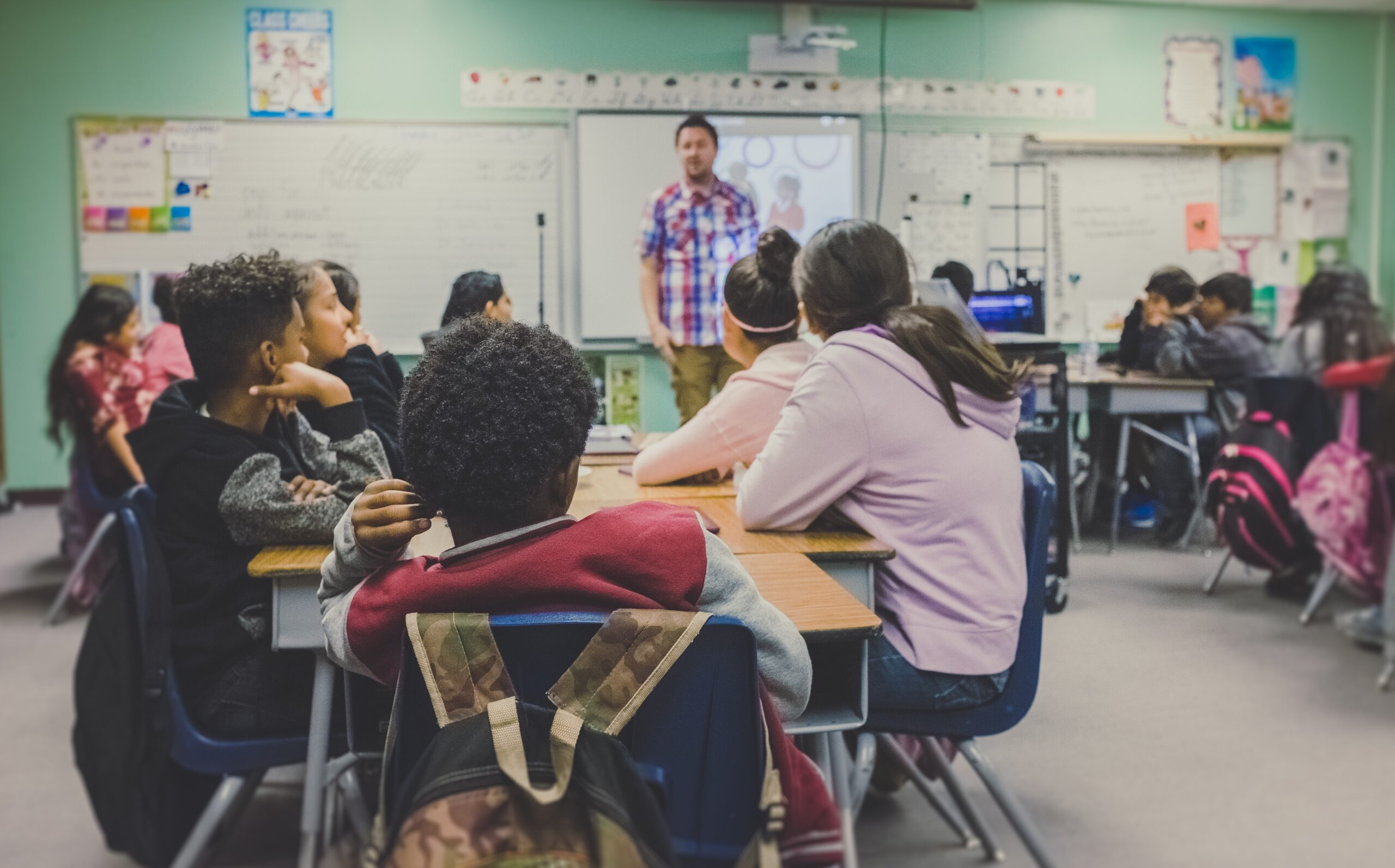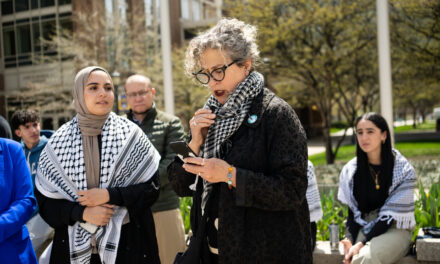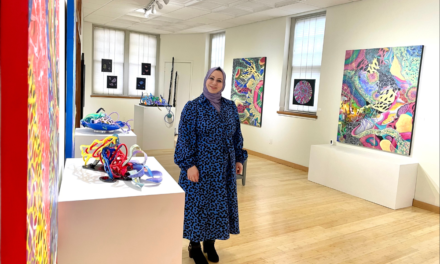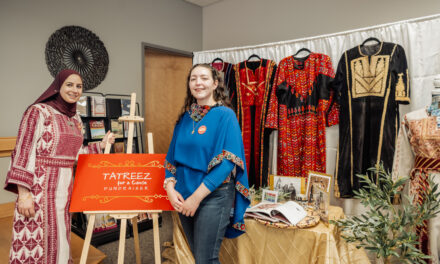University of Wisconsin – Madison scholars studied what U.S. secondary schools teach about 9/11.
Wisconsin schools participated in a ritual this week that took place across the United States. Every year, on the anniversary of the Sept. 11, 2001 terrorist attacks, students and teachers in U.S. classrooms watch videos about the attacks and memorialize the events.
Some social studies teachers in Wisconsin report using lessons created by the 9/11 Memorial & Museum, which is located at “ground zero,” where the twin World Trade Center towers fell. The museum’s 20th-anniversary educational program’s speakers include first responders and children of responders who lost their lives.
As its mission states, the 9/11 Museum “bears solemn witness to the terrorists’ attacks … honors the nearly 3,000 victims and all those who risked their lives to save others. It further recognizes the thousands who survived and all who manifested extraordinary compassion and leadership in the wake of the attacks. Demonstrating the consequences of terrorism on individual lives and its impact on communities …, the 9/11 Memorial & Museum attests to the triumph of human dignity over human depravity and affirms an unwavering commitment to the fundamental value of human life.”
A team of University of Wisconsin-Madison scholars found schools across America talk about 9/11 much like the 9/11 Museum does. In two decades of tracking what U.S. textbooks and educational materials say about 9/11 and how secondary school teachers are addressing it, they found that themes of memorialization, heroism and nationalism told through human interest stories are prevalent. They warn “there are inherent risks in teaching a simple nationalistic narrative of heroism and evil.”
“What we have found is a relatively consistent narrative that focuses on 9/11 as an unprecedented and shocking attack, the heroism of the firefighters and other first responders and a global community that stood behind the U.S. in its pursuit of terrorists,” wrote Dr. Jeremy Stoddard, professor of curriculum and instruction, and Dr. Diana Hess, professor of curriculum and instruction and dean of UW-Madison’s School of Education, in their Sept. 8, 2021 article in The Conversation.
The problem with this narrative is what it leaves out, they say. By recreating the day and insisting future generations “never forget,” emotional experiences are emphasized over the understanding of the historical context and consequences, they wrote. It is also a missed opportunity to teach media literacy skills to a generation inundated by conspiracy theories.
“Further, by continuing to focus on 9/11 as a memorial event and emphasis on heroes and Muslim villains, with the U.S. as victim, teachers have likely reinforced rather than challenged the endemic anti-Muslim sentiment within much of U.S. society and political rhetoric,” Stoddard wrote in “Teaching about 9/11 and Terrorism and Against Islamophobia” in the Spring 2021 issue of ASSERT (Annuals of Social Studies Education Research for Teachers).
9/11 in American classrooms today
Stoddard and Hess surveyed U.S. secondary school social studies teachers in 2018 and did follow-up phone interviews with a sub-sample. They also drew on almost two decades of research to discover what teachers are teaching about 9/11 and the War of Terror that followed. They also reviewed textbook content and state academic standards.
What they found was a consistent focus on memorialization, heroism and the shock of the 9 /11 events in the U.S. and world. Missing were specific details, context and events leading up to and resulting from the attacks, their research shows.
Most teachers reported using news and documentary video footage to show their students who were not yet born in 2001 “the shock and horror people in the U.S. and the world felt.”
In addition, they found the concept of “terrorism” was explained with “an almost exclusive use of Middle Eastern or Arab examples of terrorism after 9/11. Prior to 9/11, there was a greater focus on other groups labeled as terrorists (e.g., IRA, Shining Path) as well as U.S. domestic terrorism (e.g., Oklahoma City Bombing).”
Teachers cited the timing of the anniversary as one obstacle to giving students more context for 9/11. The fact that 9/11 falls at the beginning of the academic year means the day is commemorated but there is little historical discussion of the role of the U.S. in the Middle East, among other areas that may have contributed to the attacks.
Also, discussions of controversial aspects of the subsequent War on Terror and the surveillance of U.S. citizens authorized by the USA Patriot Act are less likely to take place. “This includes a lack of focus on the evidence justifying the invasion of Iraq and holding combatants at Guantanamo Bay (Cuba),” Stoddard wrote.
Other obstacles include students’ lack of information about the events, exposure to misinformation or conspiracy theories, and a lack of understanding of Islam or active anti-Muslim sentiments shared in class, teachers reported. “These three challenges are very much related and are exacerbated by the choice to teach about 9/11 on the anniversary as a memory event, reliant on video footage that reinforces a narrative of a shocking attack by Muslim terrorists,” Stoddard wrote. “This focus on terrorism being largely associated with Muslim countries and individuals has helped to create spaces for misinformation, conspiracy theories, and Islamophobia in the current populist and nationalist context in the U.S. and Europe.”
The teachers Stoddard and Hess surveyed provided examples of how they attempted to address these issues in class and worked to support their Muslim students. “Some avoid these issues for fear of a discussion that could be harmful to their Muslim students. Others focused explicitly on teaching about Islam and examining more closely who terrorists are and what they represent,” Stoddard wrote.
What is happening in Wisconsin?
Unlike many states, Wisconsin does not have a strict standardized curriculum for social studies or about 9/11. It also does not have requirements about how the day should be commemorated. In contrast, the State of New York mandates that schools hold a moment of silence for the victims of 9/11.
Stoddard told the Wisconsin Muslim Journal he considers it positive that Wisconsin teachers have “a lot of autonomy in general to teach events like 9/11 and likely the space to do so.
“I also know that some districts, Madison is an example, teach a Modern U.S. course where 9/11 is part of one of their major themes – and other teachers have noted including it in their world/global history courses or geography courses quite heavily,” he said.
On the other hand, Wisconsin’s political context creates challenges “to engage with some of the more controversial issues,” he said, adding that Wisconsin teachers reported spending a lot of time with conspiracy theories and misinformation around the election last year. “This is something they are seeing as a growing issue. Using 9/11 as a case study to develop skills and knowledge of conspiracy theories and media literacy in general may be useful.”
Tips for Teachers
Stoddard and Hess recommend teachers engage their students actively in inquiry and deliberation around what happened and what the response in the U.S. and the world should be. They recommend social studies students explore “the developing and contested concept of terrorism by analyzing different definitions and then measuring them against historic and contemporary examples of people labeled as terrorists or actions considered as terrorism.”
History students can learn about the history of the Middle East, the legacy of the colonial era and the Cold War, and the role of the United States in the region. Government students can deliberate both domestic and foreign policy options for how the United States should respond and how it should act as a world power with its allies, they suggest. Civics students can examine how the events were covered in different countries or even by different news outlets and how these media promoted citizens to respond.
“What is clear from our research is that it will be critically important for teachers to ensure their students are aware of basic information that will help them understand the event and why it is important,” Stoddard and Hess wrote. They recommend teachers identify important concepts and make sure students are engaging in opportunities to understand them in their complexity, and to examine evidence and view 9/11 from multiple stances, working to develop an understanding of the major issues involved, the context and “how the 9/11 attacks and the War on Terror affect us as individuals, citizens and Americans.”
Resources for Teachers
Learning for Justice: Commemorate 9/11 by Confronting Islamophobia
Center for Islam in the Contemporary World: Culturally Responsive 9/11 Teaching Resources














